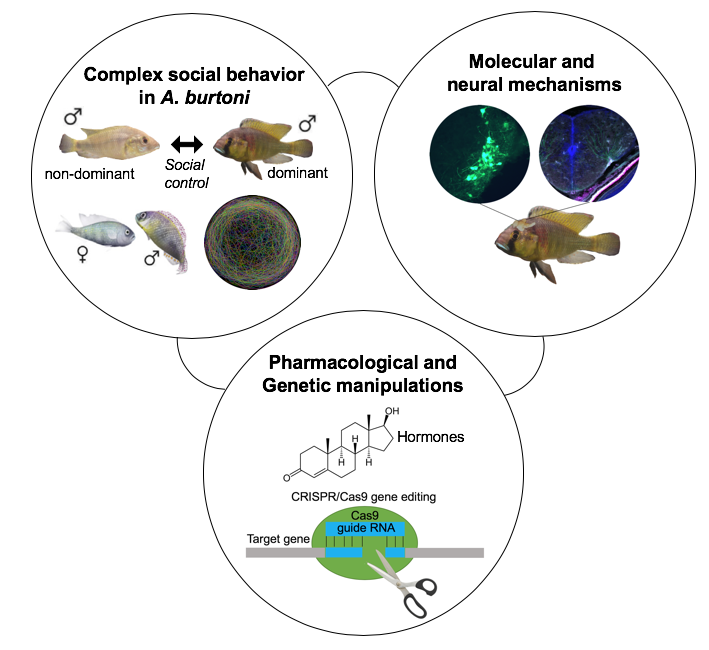Overarching theme
Social behavior depends on a number of factors such as experience, internal state, and the social context. We aim to elucidate the interrelationships between these factors through the lens of behavioral neuroendocrinology. The goal of our research program is to determine the molecular and neural mechanisms governing social behavior using an integrative, multidisciplinary approach in the African cichlid fish, Astatotilapia burtoni.
Study species and approach
We use the African cichlid fish A. burtoni, an excellent species in which to study the mechanistic basis of flexible social behavior. A. burtoni form social hierarchies, where males compete for high rank. These hierarchies, however, are not fixed: lower ranking males constantly survey the social environment waiting for an opportunity to ascend in social rank. We dissect this “social calculus” using an integrative toolkit including next-generation sequencing, CRISPR-Cas9 gene editing, pharmacology, brain immunolabeling techniques, and rich yet tractable social behavior paradigms.

Current topics
- Genetic dissection of the hormonal control of social behavior
- Sex differences in the neuroendocrine control of behavior
- Development and refinement of a genetically-defined, cell-type specific, and spatially resolved atlas of the social brain in A. burtoni
Funding
- Beckman Young Investigator Award: $600,000 over 4 years. Award background
- National Institute of General Medical Sciences (NIGMS) Early Stage Investigator Maximizing Investigators’ Research Award (R35): $1,900,000 over 5 years. Award background